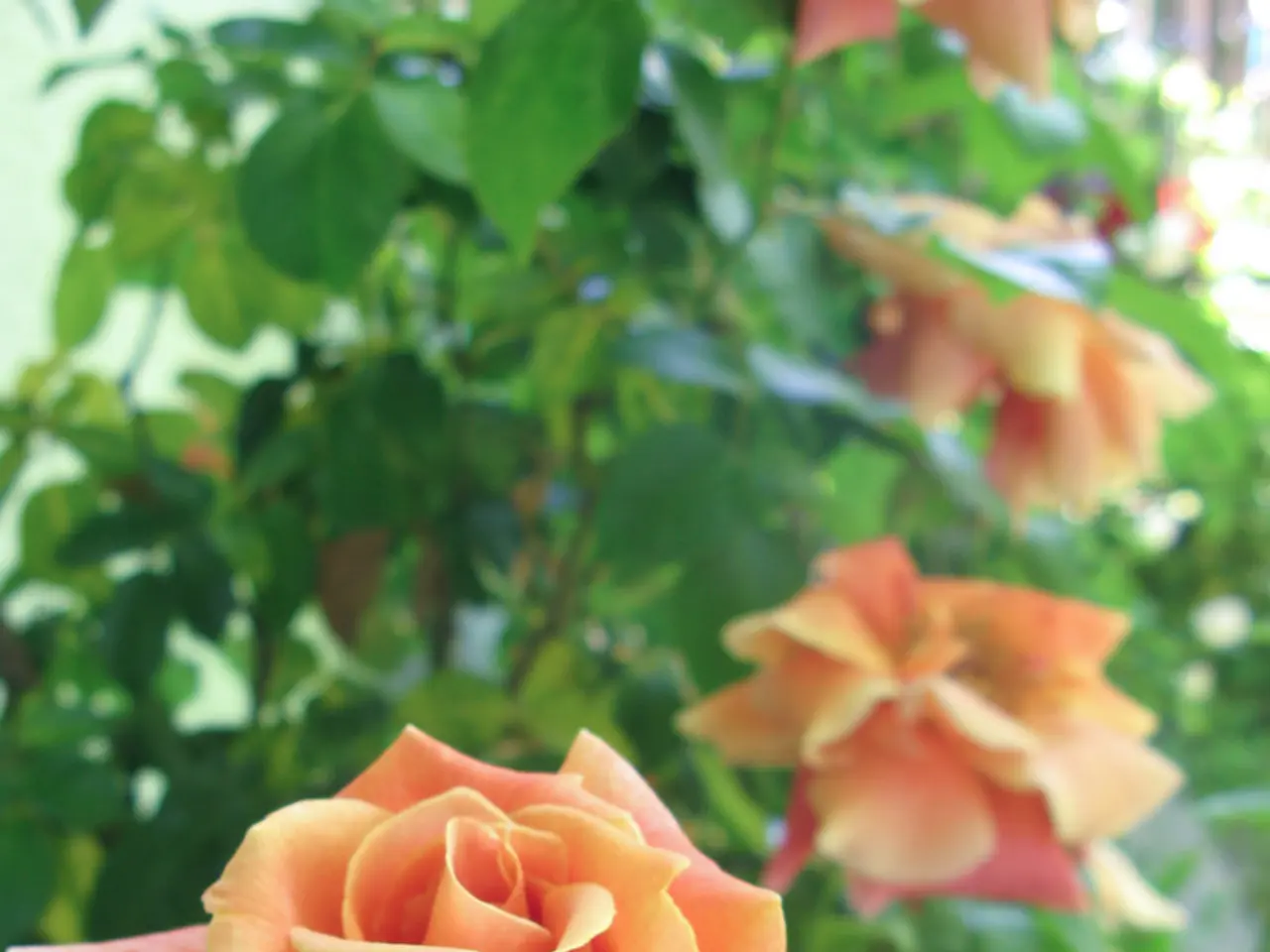Important Pest Management in Rose Gardens
In the world of rose gardening, maintaining a healthy and vibrant garden is essential. However, pests like aphids and mildew can pose a significant challenge. To combat these issues, a combination of observation, cultural practices, beneficial insects, and natural sprays can be employed.
Identifying the Enemy
Understanding your foes is the first step towards victory. Aphids, tiny insects often found on new growth and undersides of leaves, can be identified by their soft bodies, which are usually green, black, or red. They cluster and cause distorted, sticky, or yellowing leaves. Mildew, on the other hand, appears as white or grayish powdery spots on leaves, stems, and buds, especially in humid or crowded conditions.
Natural Control Methods
- Soap-Based Sprays: A solution of about one tablespoon of mild liquid soap in a quart of water can be used to suffocate aphids and spider mites. This method is safe for beneficial insects and the environment.
- Neem Oil Treatments: Neem oil (0.5–1%) mixed with water and a mild soap surfactant can be used as a foliar spray for direct contact kill and antifeedant effects on aphids. For persistent aphids, soil drenches with neem oil can deter root and stem-feeding pests. Adding essential oils like citronella or peppermint enhances repellency.
- Encourage Beneficial Insects: Attract or introduce natural predators such as ladybugs, lacewings, hoverflies, and parasitic wasps (Aphidius species), which consume aphids heavily. Plant nectar-rich companion flowers to support these beneficial insects.
- Mechanical Removal: Use a strong jet of water to dislodge aphids or manually remove and crush them on smaller plants. Prune and dispose of heavily infested shoots to prevent spread.
- Cultural Practices Against Mildew: Improve air circulation by spacing roses 24–36 inches apart, prune interior canes to reduce humidity, and promptly remove fallen and infected leaves. Avoid overhead watering to keep foliage dry. Use organic fungicides like sulfur if mildew appears.
Additional Strategies
- Mulching: Applying a layer of mulch around roses helps retain moisture and suppress weeds.
- Companion Planting: Certain flowers or herbs can be planted alongside roses to keep pests away.
- Regular Monitoring: Regularly checking the rose garden for pests helps catch problems early and keep the roses healthy.
- Safety: Using natural pest repellents ensures the safety of family and pets.
- Pruning: Pruning roses in early spring removes dead or weak wood and promotes new growth.
- Homemade Solutions: Using homemade solutions like soapy water or neem oil for pest control keeps the garden natural.
- Eco-Friendly: Opting for natural methods in pest control helps the environment by avoiding toxic chemicals.
- Cost-Effective: Many natural pest control strategies are inexpensive or even free.
Beneficial Insects
Insects like ladybugs and lacewings feed on pests that harm roses, maintaining a balanced ecosystem. These beneficial insects can be attracted to the garden by planting nectar-rich companion flowers.
Conclusion
By employing these natural strategies, gardeners can manage rose pests effectively, promoting a healthy, thriving rose garden without harmful chemicals. From soap-based sprays to encouraging beneficial insects, these methods combine physical removal, biological control, and environmentally safe sprays to create a harmonious rose garden ecosystem.
To maintain a balanced home-and-garden ecosystem, consider employing beneficial insects like ladybugs and lacewings that feed on pests that harm roses, thereby promoting a healthy rose-centric lifestyle. When it comes to controlling pests like aphids and mildew, resort to natural methods such as soap-based sprays, neem oil treatments, mechanical removal, cultural practices, or even incorporating nectar-rich companion flowers for attracting these beneficial insects.




